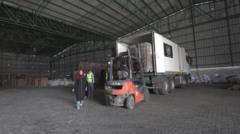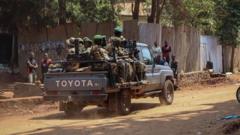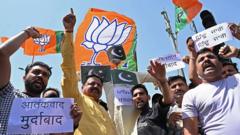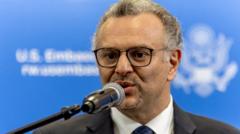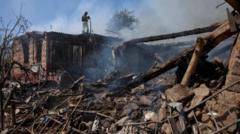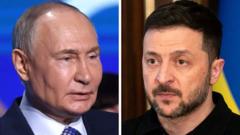In a surprising turn of events, the Democratic Republic of Congo agrees to negotiate peace with the M23 militia, supported by Rwanda.
Congo and M23 Rebel Group Agree to Cease Hostilities

Congo and M23 Rebel Group Agree to Cease Hostilities
Joint statement marks a significant shift in the prolonged conflict.
The Democratic Republic of Congo (DRC) and the Rwanda-backed militia M23 have announced a joint commitment to halt hostilities, a decision that represents a remarkable shift in a conflict that has claimed thousands of lives along the two nations' border since January. This unexpected announcement came late on Wednesday, as President Felix Tshisekedi's administration had long insisted that it would never negotiate directly with the militia, which has gained control of significant territory in Congo, including resource-rich cities.
In the shared statement, both parties pledged to an "immediate cessation of hostilities" and laid the groundwork for a potential peace agreement. This unusual cooperation has surprised analysts, given Tshisekedi's previous stance that any discussions would require direct involvement from Rwanda rather than engagement with M23.
Fred Bauma, head of the Congolese research institute Ebuteli, called this declaration "unprecedented," highlighting the long history of animosity. The United States and United Nations have consistently accused Rwanda of providing support to M23, allegations that Rwanda has refuted.
The recent agreement is seen as a positive development in a conflict deeply rooted in history, dating back to the mid-1990s when a genocide in Rwanda sparked a mass exodus into Congo. This migration contributed to two devastating wars that, according to U.N. estimates, resulted in approximately six million deaths. Since the start of 2025, violence and hostilities have surged once more, making this ceasefire a pivotal moment for both nations.




